In this blog, community organizer Jacob Wolos shares recaps on each season, extra notes taken during meetings, and thoughts about how we draw from each other, scholars, and ancestors to build community. Click here to see the complete annotated bibliography of references made across every blog post!
We invite you to contribute your own reflections by emailing [email protected] directly.
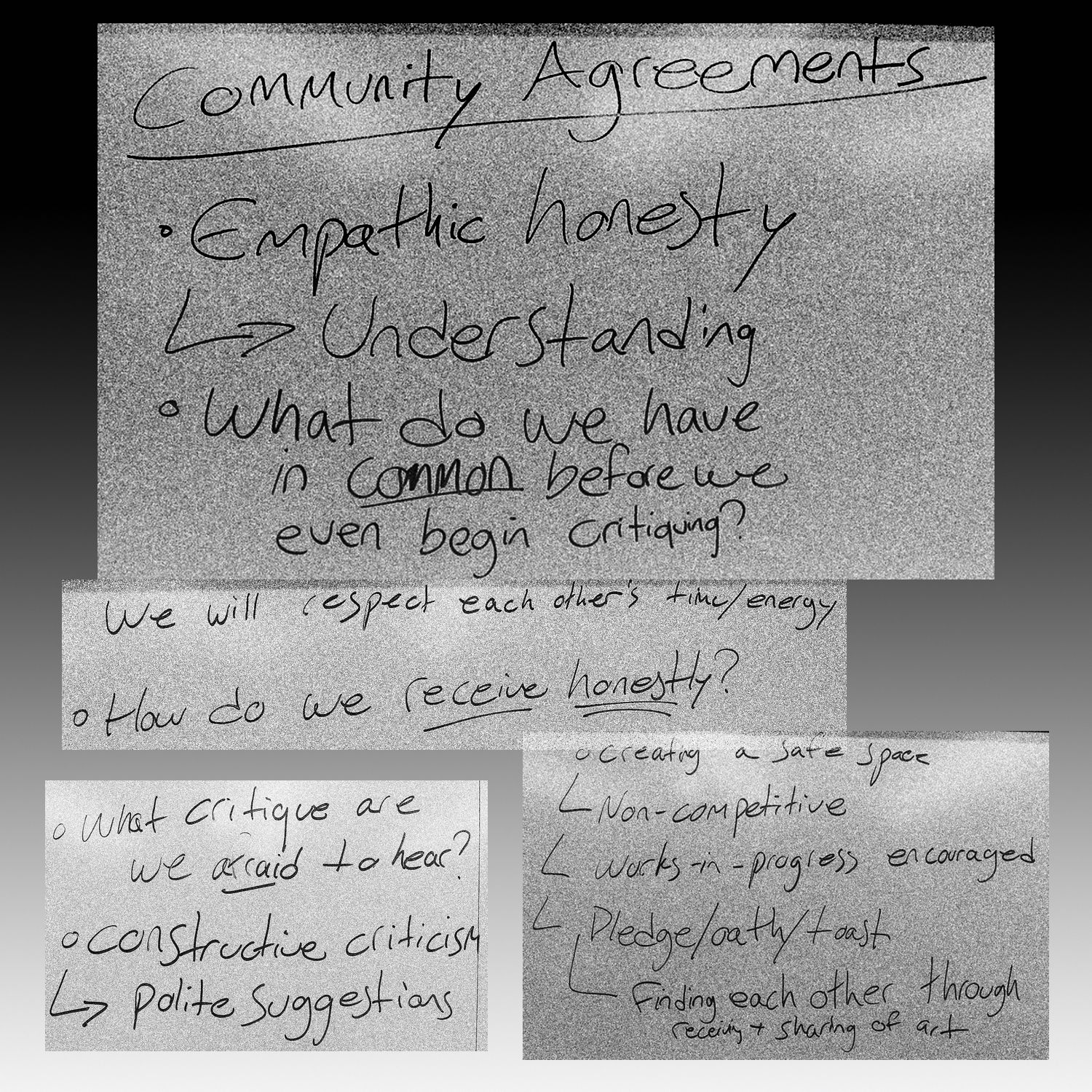
Entry 9
September 2024: Community Agreements
“This month, as a continuation of our first cycle of Arts and Ethics programming, members from our community gathered to prepare the ‘rules of the road’ for how our artist meetups would conduct interdisciplinary critiques.”
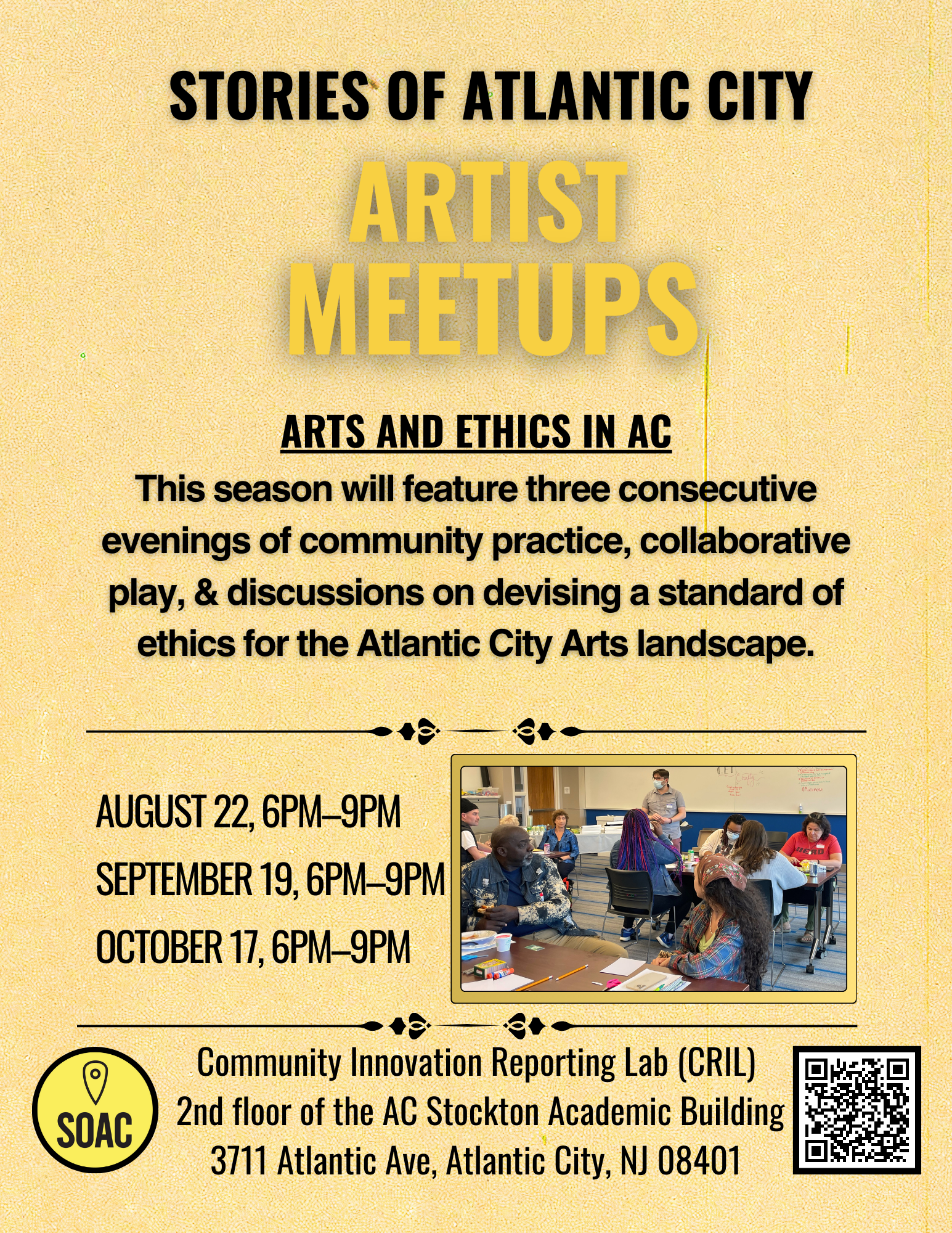
Entry 8
August 2024: The Artist-Activist Meetup
In this entry, Jacob describes some aspects of his relationship between art-making and activism: “Each day I seek new ways to allow my fingers’ smudges to interplay with the worlds reflected in my mirror.”
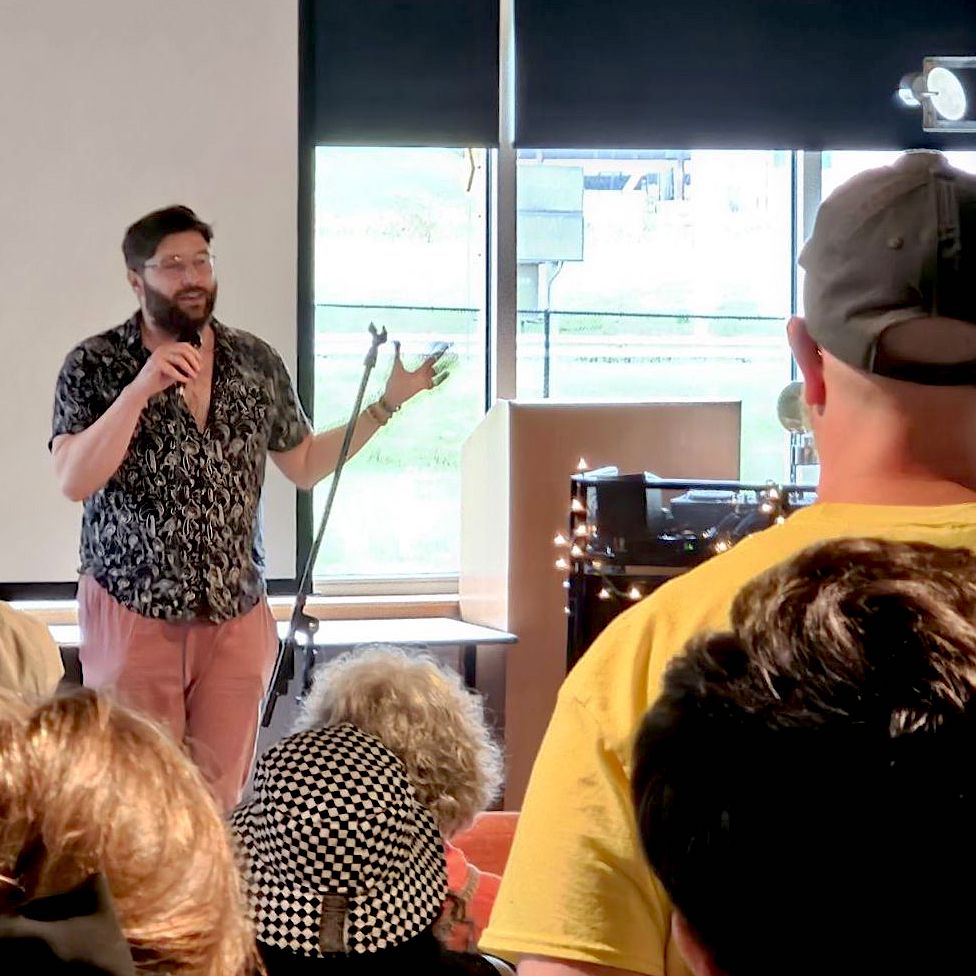
Entry 7
July 2024: SOAC’S Inaugural Celebration of Expression
“How else can I begin this letter other than with a heartfelt, impossibly large “thank you” to the dozens of artists, SOAC and Arts Garage team members, and community members who worked tirelessly to pull off this exquisite celebration of the arts in Atlantic City?”
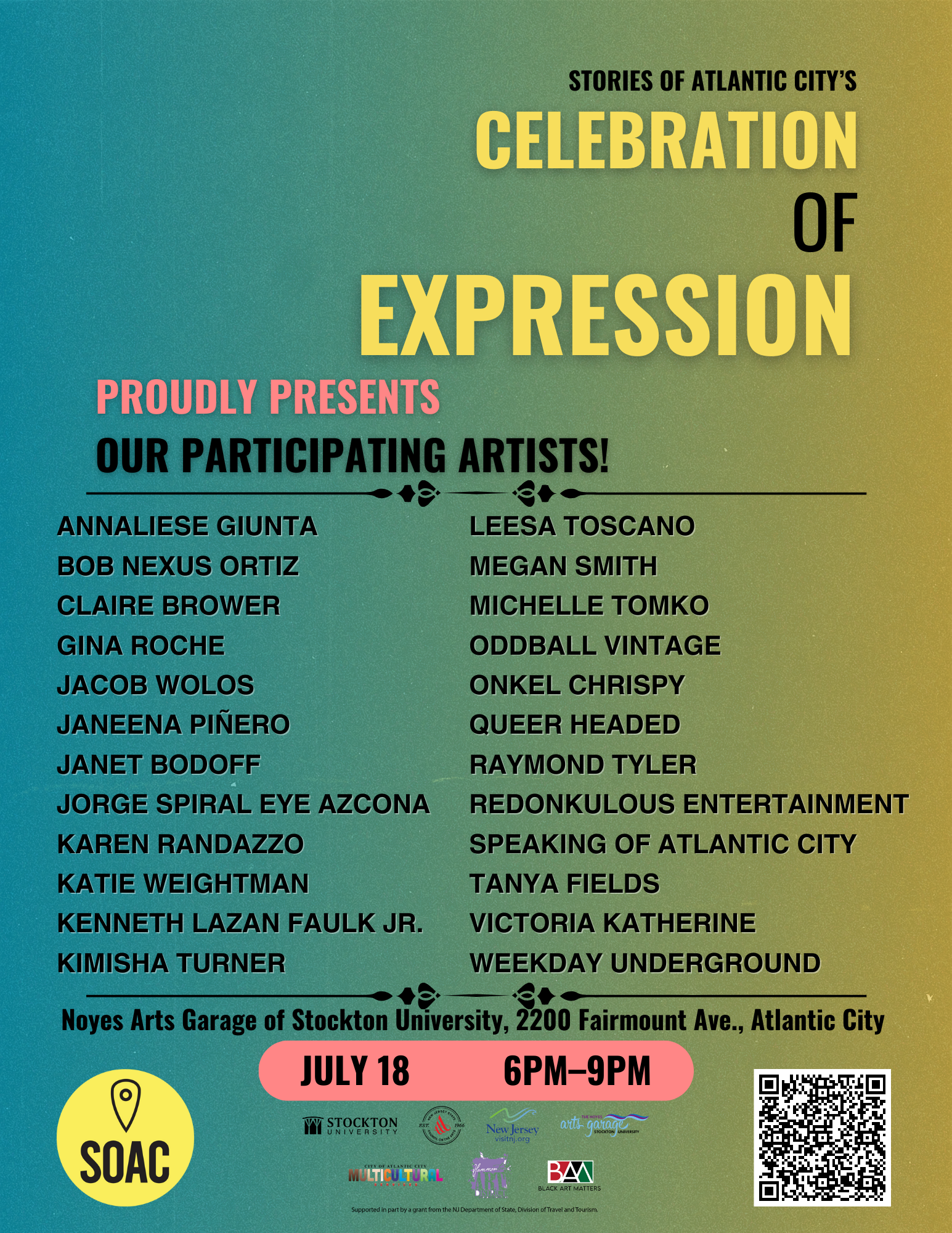
Entry 6
June 2024
In this final letter before our July 18th Celebration of Expression event, Jacob reflects on what it means to be a community organizer.
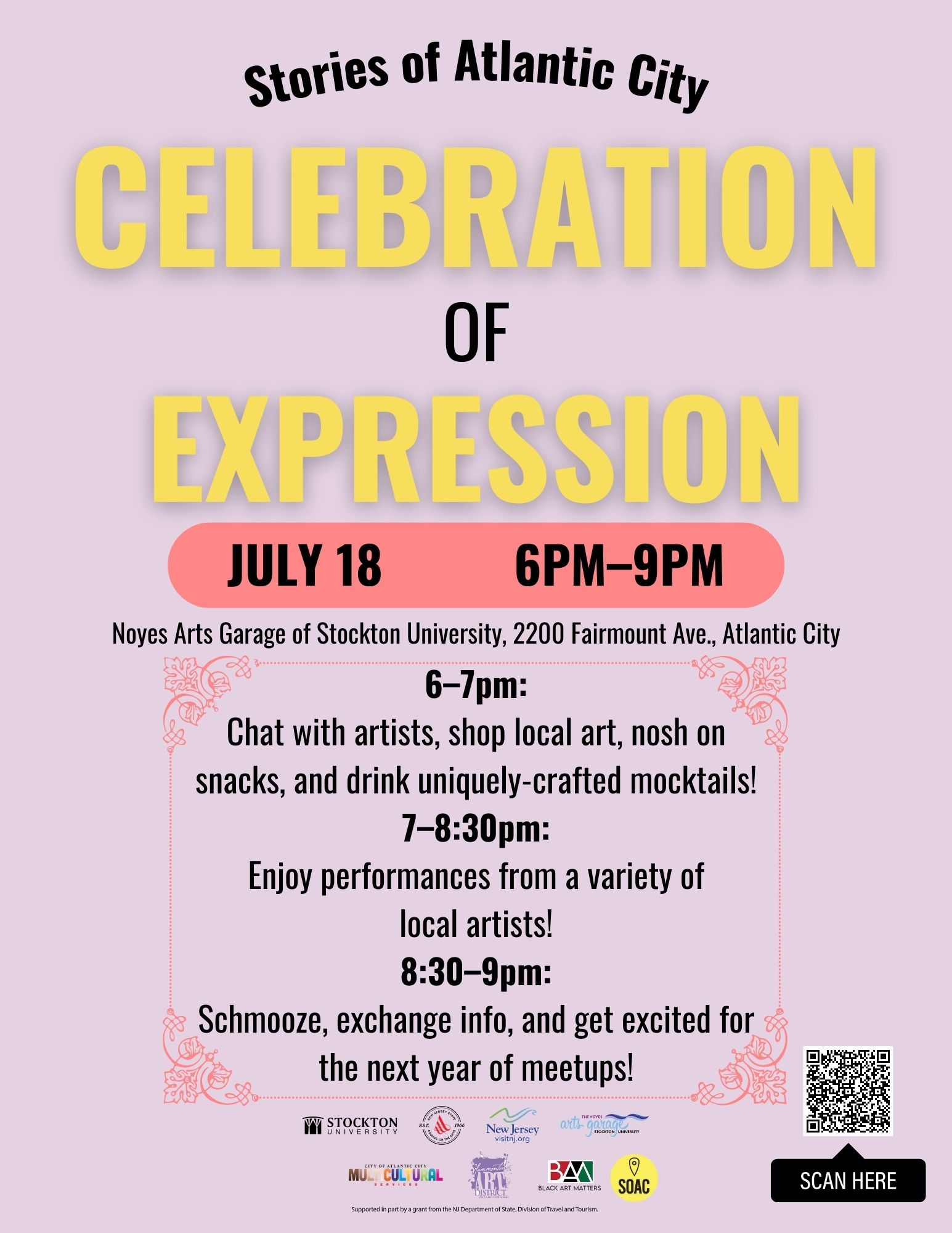
Entry 5
May 2024
In this brief entry, Jacob shares updates regarding the making of our upcoming July 18th Celebration of Expression event!
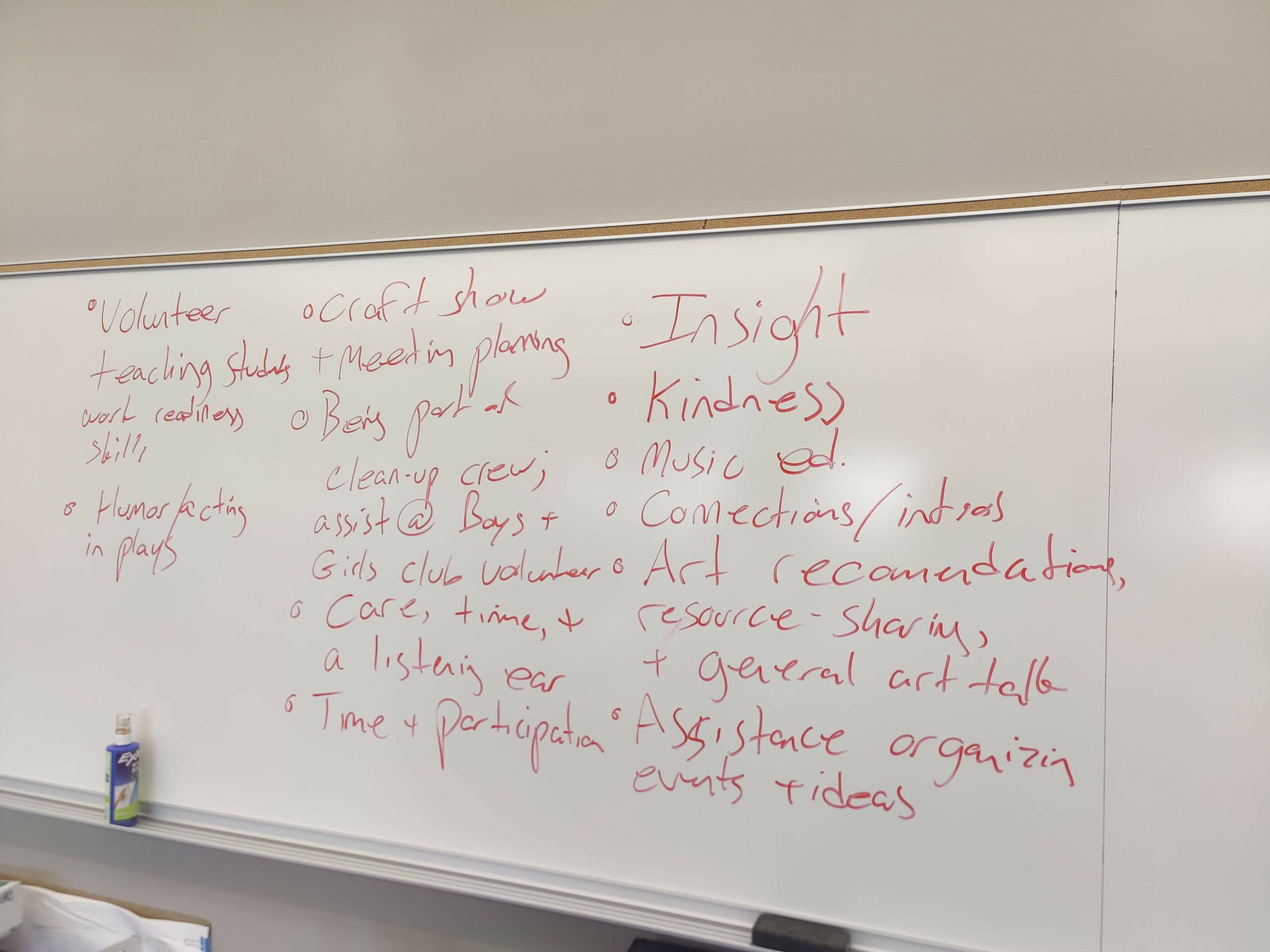
Entry 4
April 2024
In this reflection, Jacob discusses how to honor the needs and celebrate the achievements of our artistic community.
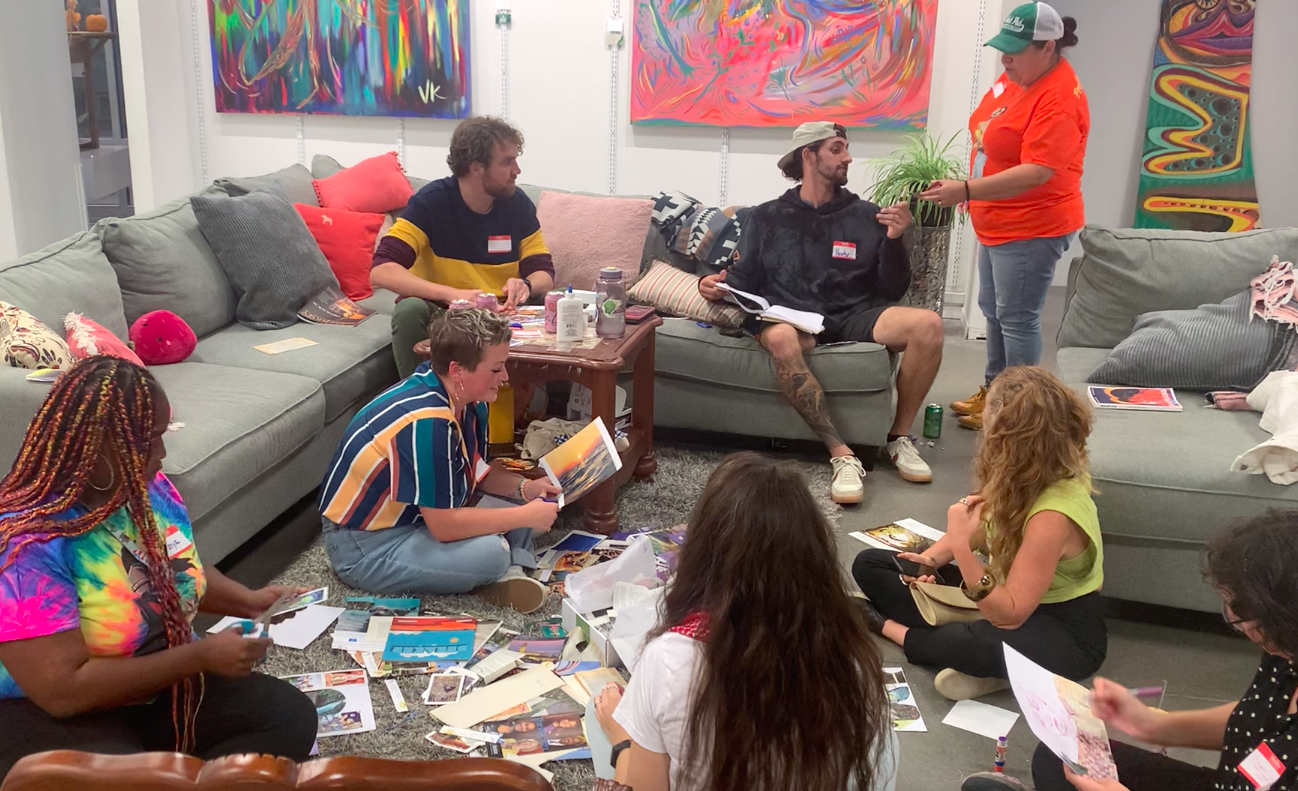
Entry 3
March 2024
In this entry, Jacob discusses the interconnectedness of grief and joy and the effect that relationship has on community-building.
Some topics covered:
• Loss
• “Leading through vulnerability”
• Our friends at Queer Headed
• Creating temporary alternative worlds
• The timeless way of building

Entry 2
February 2024
In this letter, Jacob shares some of the community’s thoughts on how to lessen the impact of the judgmental voices we hear when creating our art. Also, he ponders a few ways we can work together in our meeting spaces each month to use community as a method of diffusing fear.
A few powerful quotes from the meeting:
• “Forty thousand people live in this city. Just because we don’t know who the artists are doesn’t mean they aren’t here.”
• “Open dialogue invites vulnerability and authenticity.”
• “Who are you speaking for and why are you speaking for them?”
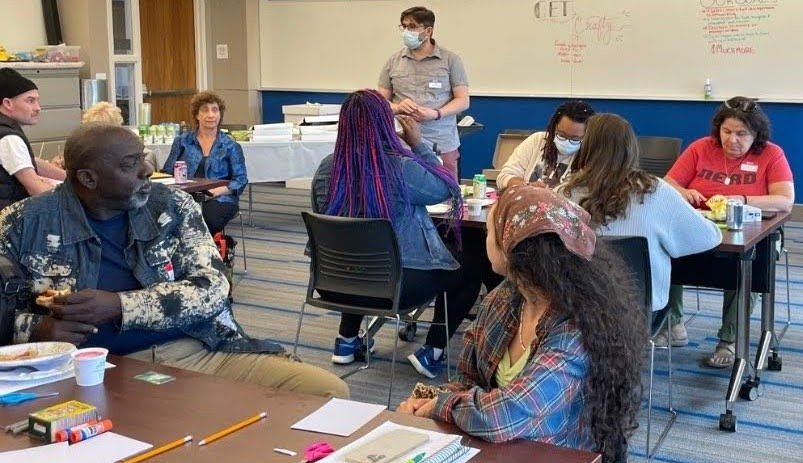
Entry 1
July 2023–January 2024
In this opening letter and the blog’s very first recap, Jacob introduces their thoughts on how a blog could benefit the Artist Meetups by extending community-making out past the walls of the CRIL space.
Mentioned (in no particular order):
• bell hooks
• Mutual aid
• Ross Gay’s “Catalog of Unabashed Gratitude”
• Impermanence vs. improvisation
• What it means to feel like we are “surviving” and how we can make it easier for each other
Our Artist Meetup series is supported by New Jersey Civic Information Consortium, a nonprofit that funds initiatives to benefit the State’s civic life and meet the evolving information needs of New Jersey’s communities. A first-in-the-nation project, the Consortium reimagines how public funding can be used to address the growing problem of news deserts, misinformation, and support more informed communities.